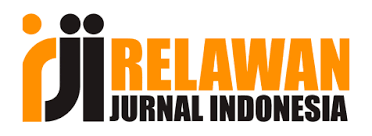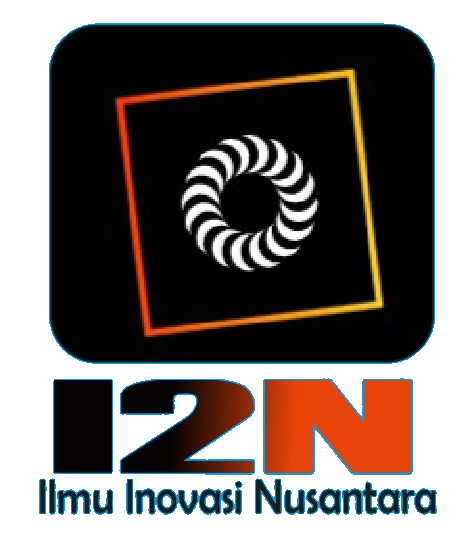Implementing the Pancasila Rahmatan lil Alamin Student Profile Strengthening Project: A GESI-Based Analysis of Gender Equality and Social Inclusion in Madrasah Education
DOI:
https://doi.org/10.58557/(ijeh).v5i2.297Keywords:
P5PPRA Implementation, Gender Equality, Social Inclusion, Madrasah Education, GESI FrameworkAbstract
The Pancasila Rahmatan lil Alamin Student Profile Strengthening Project (P5PPRA) represents a key initiative of the Merdeka Curriculum to foster students' competencies and character development through a project-based learning approach. This study explores the implementation of the P5PPRA program at MAN Grobogan Regency, focusing on students’ social construction of gender roles and inclusion, analyzed from the perspective of Gender Equality and Social Inclusion (GESI). The study also evaluates how the GESI framework supports gender equality and social inclusion within the madrasah setting. The study employed data collection techniques using a qualitative research design, including in-depth interviews, focus group discussions (FGDs), and direct observations. Research participants included students, teachers, and madrasah administrators from MAN 1 Grobogan and MAN 2 Grobogan. The findings reveal that the P5PPRA program provides equitable opportunities for student participation, reflecting a positive step toward inclusion. However, entrenched gender stereotypes continue to shape the division of roles in project groups. Male students predominantly assume technical or physical tasks, while female students are more often relegated to administrative responsibilities. This pattern highlights the persistent influence of societal gender norms on students' social construction. GESI implementation within the two madrasahs demonstrates significant progress in ensuring accessibility and participation for all students. Nonetheless, challenges remain in fostering an entirely equitable and inclusive environment, particularly in the balanced allocation of roles and responsibilities. To address this, future initiatives should incorporate targeted strategies to dismantle gender norms and enhance inclusive practices across all project activities
References
Astuti, T. M. P. (2007). Gender bias in science and technology. Infokam, 2(3), 63-68.
Berger, P. L., & Luckmann, T. (1991). The Social Construction of Reality: A Treatise in the Sociology of Knowledge. Penguin Books.
Connell, R. W. (2009). Gender: In World Perspective (2nd ed.). Cambridge: Polity Press.
Creswell, J. W. (2014). Research Design: Qualitative, Quantitative, and Mixed Methods Approaches (4th ed.). Thousand Oaks, CA: Sage Publications.
Dalimoenthe, H. (2021). "Gender Mainstreaming in Indonesian Education: Opportunities and Challenges." Journal of Gender Studies, 12(3), 45–60.
Dalimoenthe, I. (2021). sociology of gender. Bumi Aksara.
Denzin, N. K. (2009). The Research Act: A Theoretical Introduction to Sociological Methods. New York: Routledge.
Directorate of KSKK, M. (2022). Guidelines for the Development of the Project on Strengthening the Pancasila Student Profile and the Rahmatan Lil Alamin Student Profile. Ministry of Education and Culture, 1-108.
DP3AKB, G. (2023). Grobogan Regency Government Highly Committed to Gender Mainstreaming. https://dp3akb.grobogan.go.id/pemkab-grobogan-berkomitmen-tinggi-pada-pengarusutamaan-gender/
Hadian, T., Mulyana, R., Mulyana, N., & Tejawiani, I. (2022). Implementation of Project Based Learning to Strengthen the Profile of Pancasila Students in Sman 1 Sukabumi City. Primary: Journal of ElementarySchool Teacher Education, 11(6), 1659. https://doi.org/10.33578/jpfkip.v11i6.9307
Hasan, M., Harahap, T. K., Mainuddin, & Trisnawati, S. N. I. (2021). Introduction to Indonesian Education: New Directions in Shaping the Profile of Pancasila Students. https://www.google.co.id/books/edition/PENGANTAR_PENDIDIKAN_INDONESIA_ARAH_BARU
Intan Maharani, A., & Arinda Putri, P. (2023). The P5 Program as an Implementation of the Merdeka Curriculum: Obstacles and Efforts. 1(2), 176-187. https://doi.org/10.59024/atmosfer.v1i2.153
Kabeer, N. (2005). Inclusive Citizenship: Meanings and Expressions. London: Zed Books.
Kemdikbud. (2021). Panduan Kurikulum Merdeka: Konsep dan Implementasi. Jakarta: Kementerian Pendidikan, Kebudayaan, Riset, dan Teknologi.
Kementerian Agama RI. (2022). Keputusan Menteri Agama Nomor 347 Tahun 2022 tentang Panduan Implementasi Kurikulum Merdeka di Madrasah. Jakarta: Kementerian Agama Republik Indonesia.
Kertati, I., & Riptek, J. (2019). Evaluation of the Implementation of Gender Mainstreaming (PUG) in Semarang City. Journal of Riptek, 13(1), 57-64. http://riptek.semarangkota.go.id
Khavifah, N., Lubis, F. O., & Oxcygentri, O. (2022). Social Construction of Feminine Male Stereotypes (Case Study on Feminine Males in Karawang Regency). Scientific Journal of Wahana Pendidikan, 8 (November), 510-518.
Khavifah, S., Rahayu, I., & Nugroho, A. (2022). "Gender Norms and Education: An Analysis of Gender Roles in Indonesian Schools." Journal of Educational Studies, 15(3), 120–132.
Krueger, R. A., & Casey, M. A. (2015). Focus Groups: A Practical Guide for Applied Research (5th ed.). Thousand Oaks, CA: Sage Publications.
Lestari, P. (2021). Women in Harmony of Tradition and Modernization (Study on Osing Tribal Women). Integralistik, 32(2), 67-74. https://doi.org/10.15294/integralistik.v32i2.29473
Maulid, A. (2022). Feminist Perspectives on Education: Bridging Gender Gaps in Learning Spaces. Jakarta: Pustaka Nusantara.
Maulid, P. (2022). Analysis of Liberal Feminism on the Concept of Women's Education (Comparative Study between the Thought of Dewi Sartika and Rahmah El-Yunusiyyah). Journal of Religious Research, 2(2), 305-334. https://doi.org/10.15575/jra.v2i2.17534
Miles, M. B., Huberman, A. M., & Saldaña, J. (2014). Qualitative Data Analysis: A Methods Sourcebook (3rd ed.). Thousand Oaks, CA: Sage Publications.
Ministry of Education. (2022). Guidelines for the Pancasila Student Profile Strengthening Project. Pancasila Learner Profile Strengthening Project, 2.
Ministry of Religious Affairs. (2022). Decree of the Minister of Religious Affairs of the Republic of Indonesia No. 347 of 2022 concerning Guidelines for Implementing the Independent Curriculum in Madrasahs. Implementation of the Independent Curriculum, 1-60. https://www.mgmpmadrasah.com/2022/04/download- kma-keputusan-menteri-agama.html
Ministry of Religious Affairs. (2022). Decree of the Minister of Religious Affairs No. 347 of 2022 on Guidelines for Implementing the Merdeka Curriculum in Madrasahs. Jakarta: Ministry of Religious Affairs.
Moleong, L. J. (2017). Metodologi Penelitian Kualitatif (Revised ed.). Bandung: PT Remaja Rosdakarya.
Munandar, A. (2017). Proceedings of the National Seminar of Indonesian Education Educators and Developers with the Theme "Building a Generation of Character Through Innovative Learning. Aula Handayani IKIP Mataram, 130-143.
Patton, M. Q. (2002). Qualitative Research and Evaluation Methods (3rd ed.). Thousand Oaks, CA: Sage Publications.
Sugiyono. (2019). Metode Penelitian Kuantitatif, Kualitatif, dan R&D. Bandung: Alfabeta.
Trilling, B., & Fadel, C. (2009). 21st Century Skills: Learning for Life in Our Times. San Francisco, CA: Jossey-Bass.
Tronto, J. C. (2013). Caring Democracy: Markets, Equality, and Justice. New York: NYU Press.
Widyaningrum, A., Prasetyo, M. I., & Wahyuningsih, T. (2023). "Integration of Sustainability Values in Student-Centered Learning Projects." Journal of Education and Learning Innovation, 8(2), 55–67.
Downloads
Published
How to Cite
Issue
Section
License
Copyright (c) 2025 Awwiby Awfara Ahya, Tri Marhaeni Pudji Astuti, Puji Lestari

This work is licensed under a Creative Commons Attribution-ShareAlike 4.0 International License.














